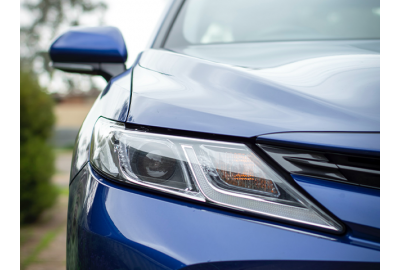What Kind Of Charges Could Car Hire Companies Charge Me?

Hiring a car when you go on holiday is a great way to explore your destination of choice. You may also want to take advantage of car hire instead of buying your own car for everyday use.
Yet for all the benefits hiring a car offers, rental firms are notorious for landing unexpected charges on customers. It’s not unheard of for people to be charged for damage to a vehicle months after having returned it.
If you do happen to be lumped with unexpected charges, Rental car suggests taking the following steps:
- Check the confirmation to determine what you agreed to pay for when you book the hire car.
- Check the terms and conditions of your hire car in the rental agreement.
- Ask the car hire company to see the check-out and check-in forms which describe the condition of the car before you drove the vehicle and when you returned it.
However, it’s not only the old ‘damage to the vehicle’ chestnut that car hire companies swing to prise more money out their customers. There are all kinds of charges car rental firms use to diddle customers.
Types Of Charges Payable To Car Hire Companies:
- Damage to vehicle
- Fuel charges
- Car hire insurance
- Upgrade fees
- Changing date or time
- Admin or processing fees
- Age
- Premium Location Fee
- Alternative drop-off
- Toll charges
- Tax charges
Damage To The Vehicle
Car rental companies admit they do not always repair dents and scratches caused to cars. This makes it easier to charge other customers for damages they didn’t even cause.
The protocol when hiring a car always involves examining the car for damages and marking a record. To avoid receiving unexpected damages on car hire, perform your own examination with the agent of the car hire and ask for a copy of the record.
Do the same when you return the car. This way you have proof that any damage to the vehicle you are being accused of was not caused by you.
Fuel Charges
Every car hire company has a fuel policy that becomes active as soon as you sign the contract. Before you sign the agreement, check what the fuel policy is.
Ordinarily, the fuel policy is full to full or partially full. This means you only have to replace the amount of fuel you use before you drop the car off.
Sometimes you will find fuel policies include pre-purchase or pre-purchase refunds.
Pre-purchase fuel policies mean you pay for the fuel that’s in the tank when you pick it up. However, if the tank is full, you may end up paying for far more fuel than you use.
The better option is pre-purchase with a refund. These fuel policies give you more flexibility. You pay for the full tank but get a refund for fuel you don’t use.
There is no guarantee that the fuel prices car hire companies charge are equal to what you would ordinarily pay if you were to fill the car up yourself. Therefore, full to full car fuel policies are the best option.
Car Hire Excess Insurance
Rental firms will offer you a package deal that includes car hire excess insurance. However, the policies generally cover the bog basics and have a high rate of excess.
What’s more, car hire insurance is optional, not an obligation. That said, car hire excess will cover you for costs if the hire car is damaged or stolen.
The best option is to take our car hire insurance with an independent insurer. For example, car hire excess insurance from a rental firm may only cover you for the first £500.
Car hire excess insurance with Bettersafe covers you for up to £2000.
If you’re planning to hire a car whilst you’re on holiday, also contemplate taking out an insurance policy that covers you for collision waiver damage (CWD) and supplementary liability insurance (SLI).
Without car hire excess insurance abroad, you could find yourself paying millions in medical bills if you have an accident that seriously injures a third party.
In some countries, SLI is not available with the basic insurance policy. For more information about the importance of CWD and SLI read this article about what happens if you have an accident in a car hire whilst overseas.
If you’re hiring a car for long-term use, annual car hire insurance is highly recommended. Paying a one-off payment for annual car hire excess insurance is less expensive and covers you for a longer period of time.
Extended Use
If you decide to extend your trip and need to hire a vehicle for longer than you originally planned, the car hire firm may charge you for the extra days at a higher rate than the charges you paid for the original booking.
The reason for this is because car rental prices are more costly the closer you get to the date you intend to hire a car. By extending use, you are effectively re-starting the booking, and therefore, pay the going rate the car hire firm is offering for that day.
Admin Or Processing Fees
When you hire a car, admin fees are bundled in with the price. Admin charges will be determined by the package. For example, if you take out annual car hire excess insurance, there will be an admin charge to account for updating your records.
However, surprise charges also come with admin fees. Let’s say you are issued with a speeding ticket for example. Because the car is registered with the company you hired it from, they will organise the payment on your behalf but charge you an admin fee on top of the fine for convenience.
Some car hire companies also offer to refuel the car or clean it. Yet if you agree, you will also have to pay an admin fee on top.
To avoid these types of fees, enquire what your obligations are upon returning the vehicle and which admin fees are included. We have already discussed the fuel policy, but you should also enquire about the fees involved in cleaning the car.
Age Limit Charges
It seems harsh to get penalised for your age when hiring a car, but rental firms justify these age limit charges by using government statistics.
According to the Department for Transport, a higher percentage of drivers under the age of 25 are involves in road traffic accidents. Subsequently, car hire firms add a surcharge to drivers that are aged under 25.
Some car hire firms also have an upper age limit of 60-80 and may charge a ‘senior drivers fee’ for customers over the maximum age limit.
The upper age limit differs from one country to the next and will even vary between car rental companies. You can find more details about senior driver tariffs on this website.
Premium Location Fee
If you’re collecting a hire car from the airport, railway station or breakdown service, you should expect to be charged a premium location fee. This will sometimes appear in your policy as airport tax and rail station surcharge.
The reason for this is because car hire firms have to pay for rental space in airports and railway stations. These charges are then passed on to the customer.
Premium location fees are either charged as a fixed rate or a percentage of the car you rent. Before deciding which car hire firm to choose, you may want to calculate the cost of a potential premium location fee.
One-Way Rentals
All the major car rental companies give customers the freedom to travel wherever they wish. They have agencies in numerous cities covering most countries so you can explore a country and drop the car off in a different location to the city you collected it from.
When you return a car to an alternative location you will be charged a one-way fee. The rates are higher than if you are dropping the car off at the same location and will be disclosed when you book either through the website or at the offices of the car hire firm.
If you are planning to drive between countries in a hire car, you may also have to pay a cross-border fee to cover additional taxes, insurance and other expenses.
You have the option to pay the cross-border fees yourself which will be less expensive. However, if you do take out car hire excess insurance with the car hire firm without paying additional cross-border fees, the insurance policy may not be valid if you were to have an accident in a country other than the one you originally hired the car from.
If you do plan to drive a hire car to another country, you must inform the car hire firm before crossing the border.
Toll Charges
Most long-distance journeys along a motorway will usually bring you to a toll road, especially in Europe. When you hire a car, you will be responsible for paying road tolls yourself at the point of entry.
Most toll charges are as simple as putting money into a slot to raise the barrier or paying an official sitting in the toll booth. You are simply pay-as-you-go.
However, in recent years, countries have started installing electronic tolls. It is estimated there will be some 874 million electronic road tolls globally by 2030.
The problem some drivers are experiencing with electronic tolls is they drive through the checkpoint without realising there is a tolling station. Every vehicle that passes through a toll is registered by the local government who will issue a fine for non-payment of road tax.
In the case of car hire vehicles, toll collecting agencies contact the car hire firm and request your details. The rental company may even pay the fine and collect it directly from your credit card or debit card. You will also be charged an admin fee.
GPS Charges
Car rental companies recognise how reliant drivers have become on GPS location devices to find the quickest route. When you’re hiring a car abroad and don’t know where you’re going, GPS navigation is a valuable tool.
Car hire firms are taking full advantage of GPS systems by charging customers to hire one. They are usually listed under ‘add extras’ and can cost as much as £12.99. Google maps on your smartphone is a far more cost-effective option.
Early & Late Return Fees
When you hire a car, the time period is calculated on a 24-hour basis. Therefore, if you collect the car midday on Monday you should return the vehicle by midday on the day you are due to return the car.
Whilst some companies give you some grace, if you are more than an hour or two late, you will probably be charged for an extra day rental.
Returning the car a couple of days earlier than anticipated won’t earn you a refund either. Most car hire will refuse you a refund on the basis they could have made the car available to other customers.
Wrap Up
This article is not intended to put you off hiring a car. On the contrary, we fully endorse car hire and there is no question that hiring a car affords you more flexibility and freedom.
Our intention, however, is to help raise your awareness of the traps you could easily fall into in relation to additional charges. Before putting pen to paper, make sure you read the paperwork, understand your obligations and take out car hire excess insurance that ensures you are adequately covered.
For more information about the car hire excess insurance we offer at Bettersafe, get in touch with our knowledgeable team.





